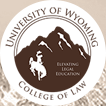Land & Water Law Symposium
Introduction
DEAN'S FOREWORD Stephen D. Easton
Approximately every other year, the Wyoming Law Review publishes a symposium where leading scholars, including academics and practitioners, present emerging issues in the law. This issue of the Wyoming Law Review presents a symposium within the Land & Water Division on corporate social responsibility in the energy and extractive industries. In corporate, academic, and policy circles, there is a lively debate about whether, and to what extent, corporations should be concerned about matters other than maximizing profitability and growth for the benefit of shareholders. As the only law school in one of the most significant energy exporting states, the University of Wyoming College of Law has particular interest and expertise in the energy industry, and therefore the Wyoming Law Review focused this debate on corporate responsibility. In order to encourage a wellrounded debate, the Wyoming Law Review accepted articles from a psychologist, a professor, a practitioner, and an economist. This special symposium issue incorporates these pieces to educate the legal community regarding perspectives outside the law.
The first article in this special symposium issue explores the connections between legal compliance and the process of making ethical decisions. In Compliance as a Subtle Precursor to Ethical Corrosion: A Strength-Based Approach as a Way Forward, Dr. Leslie E. Sekerka, Ph.D., raises concerns about institutions that focus their attention on complying with statutory and regulatory requirements. She argues that an emphasis on compliance with minimum standards can become a subtle precursor to ethical decay. She contends that continual ethical development is needed for corporations to foster ethical performance in the workplace. Blending her personal experience with her research, Dr. Sekerka urges corporations to encourage ethical behavior by employees regardless of adverse consequences. She also provides ideas for cultivating responsible leadership and employee ethical courage. Thus, Dr. Sekerka presents a viable strategy for business enterprises seeking to establish a more durable approach to the development of moral fortitude.
The second article in the symposium examines scientific analysis and policy approaches concerning hydraulic fracturing of horizontally drilled wells, an increasingly utilized technique for the development of energy resources. In Expanding Best Practice: The Conundrum of Hydraulic Fracturing, the University of Wyoming College of Laws own Distinguished Visiting Professor Stickley discusses the conflicting scientific assessments and policy recommendations surrounding hydraulic fracturing. Professor Stickley weighs the economic benefits of this emerging advancement in the development of domestic energy resources against its potential impacts on individuals and the environment. He asserts that unconventional resources will play a vital role in supplying energy for the future. Professor Stickley concludes by advocating for the expansion of the current best practice approach by operators and regulators regarding the use of this technology in Wyoming.
The third article presents an economic analysis of the extent to which environmental responsibility correlates to economic return. In Roles for Legal Scholarship in the Design of Meta-Interventions for Energy Efficiency and GHG Abatement: Lessons from Cost-Benefit Analyses of Low-Emission Development Strategies in China, Mexico, Colombia, and BeyondI, Dr. William Ward, Ph.D., identifies public interventions that can improve energy efficiency and reduce greenhouse gas emissions. Dr. Ward integrates his deep understanding of cost benefit analysis with his first hand experiential engagement in a variety of studies in emerging-market countries. Dr. Ward argues that certain interventions are necessary for markets to find solutions to energy efficiency and greenhouse gas problems and to do so without further public sector involvement. Dr. Ward educates and challenges the legal profession to incorporate economic principles that impact the social-economic-institutional environments in which individuals make technology choices and market decisions.
The final article in this symposium edition resonates with the international theme that often plays an important role in corporate responsibility discussions, by addressing whether corporations should be held liable for violations of international law in cases brought under the Alien Tort Statute. In When is a Corporation a Person? When It Wants to Be. Will Kiobel End Alien Tort Statute Litigation?, civil rights attorney Peter Henner analyzes Kiobel v. Royal Dutch Petroleum, a case currently before the United States Supreme Court. Mr. Henner discusses the tension between Supreme Court Justices and argues that holdings regarding corporate liability have been inconsistent. He reviews potential outcomes the Court might reach and the future implications of these alternative holdings, including the potential impacts that may result from holding corporations outside the reach of the Alien Tort Statute. He also reviews the oral arguments to the Supreme Court in this important case.
Articles
Unpaid Restitution: An under-Enforced Right of Victims and Suggestions to Improve the Collection of Restitution in Wyoming
Article
Daniel M. Fetsco
Regulating Liquor: Prohibition Enforcement, Official Corruption, and State Efforts to Control Alcohol after Prohibition Repeal
Article
Phil Roberts
Case Notes
Criminal Law - A Canonical Conundrum Concerning Cannabis: How Wyoming's Supreme Court Ignored Its Own Interpretive Rules and Read a Medical Marijuana Defense out of the Law, Burns v. State
Case Notes
Matt J. Stannard
Criminal Procedure - Can You Hear Me Now: Warrantless Cell Phone Searches and the Fourth Amendment; People v. Diaz
Case Notes
Joshua Eames
Special Section
Compliance as a Subtle Precursor to Ethical Corrosion: A Strength-Based Approach as a Way Forward
Special Section
Leslie E. Sekerka
When is a Corporation a Person - When It Wants to Be - Will Kiobel End Alien Tort Statute Litigation
Special Section
Peter Henner
Expanding Best Practice: The Conundrum of Hydraulic Fracturing
Special Section
Dennis C. Stickley

